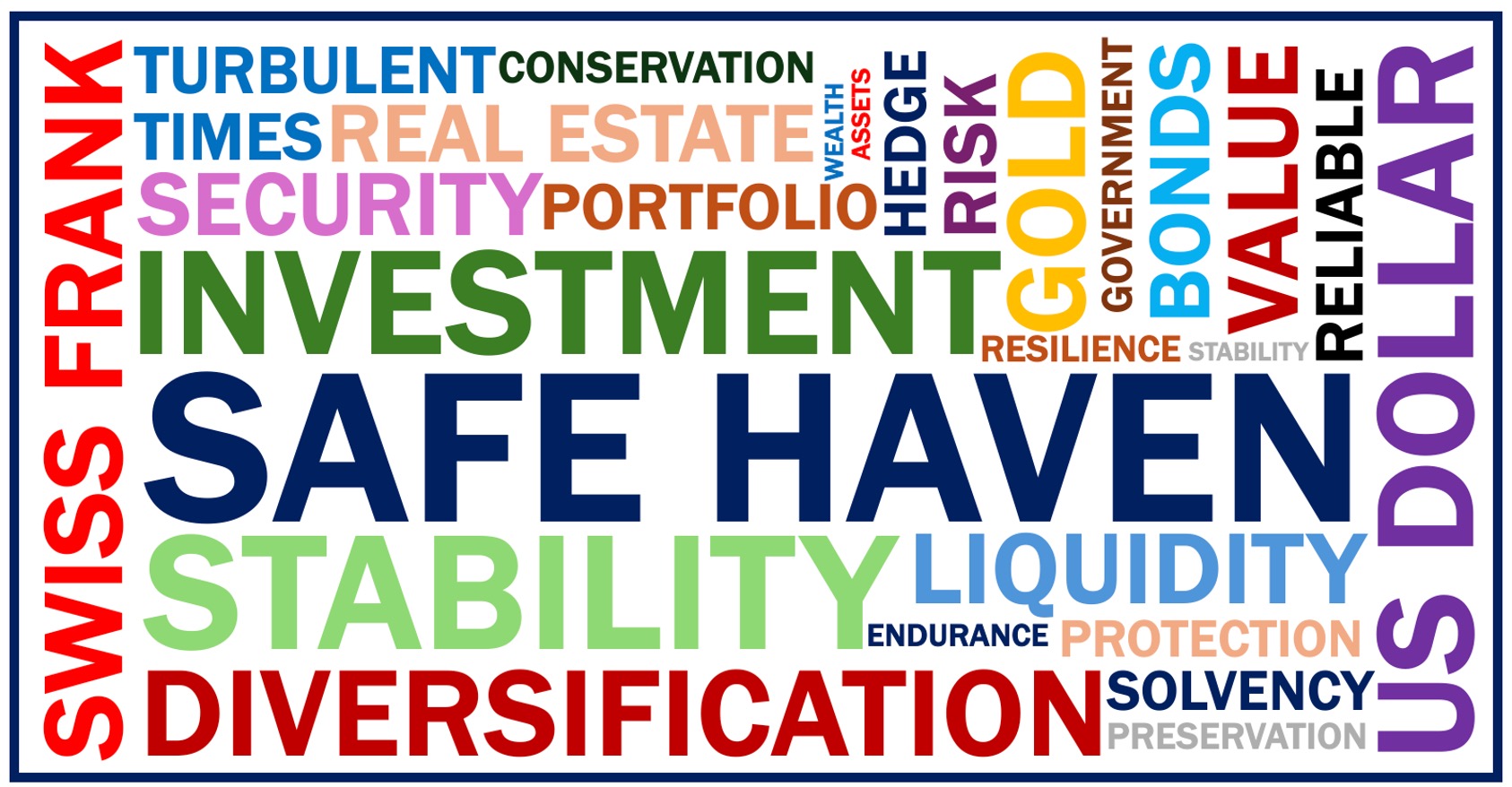A Safe Haven, in the world of finance and economics, is an investment that is expected to retain its value, especially in times of market volatility or economic downturns. Investors who are looking to minimize risk and preserve capital seek out these assets. Typical examples are gold, government bonds, and stable currencies such as the US dollar or Swiss franc.
Think of a safe haven as a lifeboat that stays afloat when the economic seas get rough.
In general English, a safe haven is a place of refuge or security. We seek it during times of danger or distress because we believe it protects us from threats or harm.
The Cambridge Dictionary has the following definition of “safe haven” plus example sentences with the term in context:
“1. An investment that keeps its value, especially when other investments are falling or may fall in value. Example: ‘The dollar was bought by investors looking for a safe haven.’”
“2. An officially protected place in an area of military activity, or any safe or peaceful place in a dangerous area. Example: ‘As long as the UN soldiers were present, the city was regarded as a safe haven for the refugees.’”
This article focuses on the meaning of the term in the contexts of business, finance, or economics.
Why do investors seek them out?
Investors seek out safe havens to protect their money. When the stock market plummets, political uncertainty arises, there is a major natural disaster, economic sanctions are imposed, inflation rates surge, currency values fluctuate unpredictably, or there is a serious threat of war, many investments lose value.
Safe havens, however, are different. They tend to hold their value or even increase during turbulent times.

What makes something a safe haven?
Safe havens usually have the following features in common:
-
Stability
Their prices do not fluctuate wildly, even during bad economic times. US government bonds fluctuate in value much less than the value of commodities or high-volatility stocks, which are often subject to rapid and unpredictable market changes.
-
Reliability
They have a history of holding up well during crises. Switzerland, for example, is a neutral country with a sophisticated and diverse economy, and its firm stance on avoiding involvement in armed conflicts reinforces the Swiss Franc as an exceptionally stable currency.
-
Unrelated to the Crisis
Their value isn’t strongly tied to whatever might be causing the economic trouble. For instance, during a market crash, the demand for gold often rises as it is considered a tangible asset with enduring value, independent of the stock market’s performance.
Examples of safe havens
-
Precious metals
Gold is the classic example. We have trusted it for thousands of years as a store of value.
-
Strong currencies
Currencies of stable countries, like the US dollar or the Swiss franc, have been seen as safe havens since the 1940s.
-
Government bonds
Government bonds are loans to governments and are considered very low-risk, making them one of the safest investment options on the market today.
-
Defensive stocks
These are stocks from companies that sell things people always need, like food or utilities, even in tough times.
-
Real Estate
Particularly in prime locations, real estate is often viewed as a safe haven. Property values tend to be more stable over time. Apart from appreciating in value, real estate can also provide rental income.
However, it’s important to note that real estate markets can also be the source of financial crises, as evidenced by the property market collapse that triggered the 2007/8 Global Financial Crisis and the subsequent Great Recession.
Safe havens are not foolproof
It is important to remember that nothing is 100% safe. Even the most reliable places or assets can experience some dips during a severe crisis.
For example, an accident at a nuclear power plant in Switzerland could result in a serious radiation leak, leading to widespread health, environmental, and economic consequences, which could impair the country’s standing as a safe haven.
Final thoughts
Safe havens can be a valuable part of a well-diversified investment portfolio. By incorporating a mix of safe havens with other types of assets, you’re distributing your risk and improving the security of your investments.
If you are not sure about safe havens or how to include them in your investment plan, consider talking to a professional financial advisor. Choose someone independent who can offer a wide range of options, not just products from their employer
